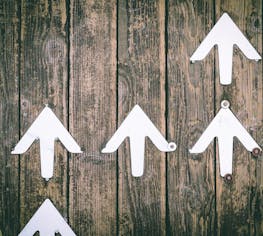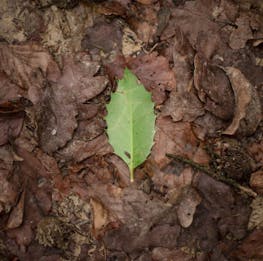The Blue Zones Summary
9 Lessons for Living Longer From the People Who've Lived Longest
What can Danish twins tell us about living longer? A Danish study on over 2,500 twins, revealed that genetics only determines about 20% of our longevity; our lifestyle dictates the remaining 80%. So, what's the optimal lifestyle de-facto formula for longevity?
Blue Zones shares the recipe for longevity, by combining insights into lifestyle with recent scientific findings to help us make sustainable health improvements. It also reveals what makes Blue Zone residents unique and how we can bring some "Blue Zone magic" into our lives.
There's a lot of confusion about what helps us to live longer and better lives. Should we run marathons? Should we eat organic grass-fed beef, and stock up on tofu? Do purpose and spirituality fit into the mix of things? And do our social interactions play a role?
Author and National Geographic explorer Dan Buettner, has spent more than a decade finding and exploring Blue Zones: places that are home to the healthiest and happiest centenarians. He and his research team, consisting of doctors, demographers, and psychologists, traveled the globe to uncover the best longevity strategies.
We'll briefly unpack why we deserve an extra dozen good years of life, and how we can gain these years by learning from those who have lived the longest. By analyzing Blue Zones, Buettner provides nine lessons for living longer, healthier, and more fulfilling lives. You might also be interested in the importance of the "grandmother effect," or a Japanese mantra that helps prevent overeating, or why a glass of wine at five in the evening might be a healthy way to end the day.
Do You Want to Live an Extra 12 Years?
Did you know that our bodies have 35 trillion cells? These cells are easily damaged, and this damage can build up exponentially. Plenty of bad habits can cause our arteries to clog, our brains to accumulate plaque, or Alzheimer's symptoms to develop. Even playing too much sport can permanently damage cartilage.
The problem is that there are no magic pills or silver-bullet lifestyle changes that will stop the aging process. At this point, you may think that if there's nothing we can do to halt aging, then what's the use of this book? The good news is that while we're not able to stop the aging process, we can slow it down.
Science tells us that the human body has an excellent capacity to manage about 90 years. However, life expectancy in America is only 78 years. So technically, there are 12 "good" years that we could get back. These years could mostly be free of chronic disease, heart disease, and diabetes, if we do it right.
The best way to get these extra twelve years back is quite simple. Study the people around the world who are actually benefiting from the additional time.
Learning to Live Longer from Those Who've Lived Longest
Move over Seven Wonders of the World; it's time to visit the Five Blue Zones.
Sardinia, the islands of Okinawa, the Nicoya Peninsula in Costa Rica, Ikaria, and Loma Linda in California form the Blue Zones. These very different locations might seem to have little in common at first glance, but if you're a health enthusiast, you may be interested in the one thing these places do have in common. What they share in common, is that they're famous for being home to the highest number of people living well past the age of 100. These people, or so-called centenarians, are marvels in terms of health, wellness, and joie de vivre.
To discover the secrets of aging well, Buettner and his team of experts methodically interviewed the people living in these zones. They wanted to gain a cross-cultural perspective of what contributes to a long and healthy life. After a decade of research, Buettner and his team have distilled nine lessons that can help us live better and longer. So, the good news is we don't have to live in a Blue Zone to live a Blue Zone life.
Here's how we can move naturally, develop "the right outlook," eat wisely and connect deeply.
Lesson 1: Move Naturally (being active without having to think about it)
It might be time to rethink that gym membership.
In Blue Zones, people don't exercise, at least not in the way we typically think of exercise. Instead, they're constantly "nudged" into doing physical activity. Moving is natural because it's embedded into their daily routine, and they avoid being sedentary.
For example, women in Okinawa tend to sit on the floor, as opposed to on chairs. By adopting this simple practice, they have to get up off the floor at least 30 or 40 times a day. They also garden for hours every single day. In Sardinia, many centenarians are shepherds, or were former shepherds, a job that requires them to walk an average of six miles per day. Sardinians also live in houses with staircases, so they're constantly climbing up and down stairs.
In Blue Zones, every trip to the store or a friend's house means walking instead of driving. They're also cultures that don't have many conveniences. There's no button that turns on the sprinkler system, no fancy blenders for baking. In fact, there are very few domestic appliances to make life "easier." People walk, tend their gardens, and do housework, all of which burn hundreds of calories.
When people in Blue Zones do exercise intentionally, they engage in physical activities that they enjoy, and focus on connecting with the mind. In Loma Linda, people choose enjoyable activities like walking, swimming, and hiking, all of which exercise the body differently. This natural way of getting out and about, has the added benefit of soaking up some sunshine. As we know, increased exposure to the sun boosts Vitamin D, which strengthens the body against cancer and diabetes.
'Longevity all-stars don't run marathons or compete in triathlons' writes Buettner. 'Instead, they engage in regular, low-intensity physical activity, often as part of a daily work routine.' So rather than forcing ourselves to go to the gym, we can opt for cheaper and more enjoyable forms of exercise. Try to walk or cycle instead of driving. Use a lunch break to walk with a friend, or take up gardening as a hobby.
People in Blue Zones also tend to adopt the 'right outlook.' They have a strong sense of purpose and take time to "downshift."
Lesson 2: Know Your Purpose (knowing why you get out of bed in the morning)
If you had to guess, which two years would you think are the two most dangerous years of your life?
According to Buettner, it's the day we're born (due to high birth mortality rates), and the day we retire. Studies show that more Americans die in the first year of retirement, than in the last year of work. This suggests that living without a sense of purpose can be harmful to our health.
In Blue Zones, people don't "retire" at the age of 60, or 70. In fact, they don't have any specific age for retirement. They keep busy. But keeping busy isn't only a means to an end. Work isn't a job; it's a way of being. Work is both a way to exercise their minds and provide for their families.
In Okinawa, there's no word for retirement. However, they have another name, one that informs their entire lives. Ikigai means "a reason for being," or as Buettner translates, 'a reason to get out of bed in the morning.' For a 102 year- old Okinawan karate master, his Ikigai is to continue the martial arts tradition. For a 100-year-old fisherman, it's to continue to catch fish three times a week to feed his family, and for another centenarian, her Ikigai was to spend time with her great-great-great-granddaughter. These two females were separated in age by over a century.
According to our author's research, having a clear sense of purpose can make us healthier, happier, and add up to seven years of extra life expectancy. Perhaps it's time to extend our vocabulary to include words like "Ikigai," and reflect on what we're grateful for and what energizes us to get out of bed in the morning.
What's more, to keep things in perspective, life shouldn't be all work and no play. People in Blue Zones know how to unwind and have fun.
Lesson 3: Downshift (taking time to relieve stress)
Stress is America's silent killer. Our bodies react terribly to stress; it often triggers inflammation, which causes various illnesses. The opposite also applies; reducing stress lowers our inflammatory response, allowing our bodies to heal.
We know that stress is an unavoidable part of life, but Blue Zone centenarians have stress-relieving rituals incorporated into their daily routines. They use different stress-reducing methods, and actively work to build wellness into their lives.
Adventists in Loma Linda pray, Ikarians nap, Sardinians do "happy hour," and Costa Ricans enjoy the time under the sheets.
In Loma Linda, the Sabbath plays a unique role in keeping stress to a minimum. The Sabbath is an opportunity to find time for others, give back to society, and laugh. They celebrate the Sabbath from sunset on Friday, to sundown on Saturday, and call it a 24-hour "sanctuary of time." They take this sanctuary time very seriously. No matter how busy they are at work or home, they dedicate this time to deepening their faith and tapping into their social groups. An essential part of the Sabbath routine is going on nature walks. The power of this "time out" isn't that it's occasional, but rather a regular event every week for a lifetime. So taking time to relax doesn't have to be complicated or costly; it just needs to be done regularly.
In Sardinia, stress is kept in check by instilling a strong sense of community and a good sense of humor. They enjoy the ritual of "happy hour," where they spend time with friends and family, usually over a glass of wine. Buettner reports that in Sardinia, they tend not to take themselves too seriously, and often enjoy a hearty laugh at their own expense. Laughter, he believes, is key to longevity.
In Costa Rica, they have a novel way of dealing with stress. Sex is a widespread stress reducer, and their liberal and open attitudes towards sex keep stress levels down.
People who make it to a hundred years of age seem to exude a sense of "sublime serenity." Perhaps this is in part due to naturally slowing down because of age. Or perhaps it's because they're wise enough to know that many of life's most precious moments pass us by, if we don't slow down and take notice. Regardless of our own beliefs, we can carve out our own weekly "sabbath time," where we learn to hit the brakes, slow down, reduce the noise and connect deeply with ourselves and others. And like the Sardinians, why not enjoy a good glass of wine (in moderation of course). And this is an excellent segue to our next lesson.
Lesson 4: Wine at Five (enjoying a glass of wine)
We know about the importance of staying hydrated and drinking lots of water, but many cultures swear by having a glass of red wine.
In Loma Linda, water is the most consumed beverage. They drink five to six glasses of water a day. As a result, the rate of heart disease in this town is much lower than elsewhere in America, and their life expectancy is much higher.
However, it's not only water that's important. Moderate but regular consumption of wine at mealtimes is part of the Blue Zone lifestyle. Buettner suggests that 'A glass of red wine or saké with friends or with each meal – no more than one a day – is more than "not bad;" it's actually great for both your health and longevity.'
If we travel to the Italian island of Sardinia, which boasts a high life expectancy for men, daily meals are generally always enjoyed with red wine. However, it's not just any wine. Sardinians drink Cannonau wine, which boasts two to three times the level of artery-scrubbing flavonoids than any other wine in the world. Flavonoids reduce the incidence of certain cancers and heart disease, explaining why Sardinian men have the lowest incidence of heart disease in the world. So, if you do decide to enjoy a glass of wine, buy a case of high-quality red wine.
Lesson 5: The Plant Slant (consuming more plant-based foods)
To live a longer and healthier life, we should all give our diet the "Plant Slant," and avoid meat and processed foods.
Buettner and his team sifted through more than 150 dietary surveys of the world's longest-living people to discover the secrets of a longevity diet. Unsurprisingly, vegetables, fruit, whole grains, and nuts predominate, whereas meat, dairy, and processed foods are kept to a minimum.
Adventists in Loma Linda avoid meat altogether. And in other areas such as Sardinia, Okinawa, and Nicoya, meat is eaten in small amounts, primarily because these areas have limited access to meat. In place of animal proteins, Sardinians fuel up on Durum wheat, and Okinawans enjoy tofu. A distinct version of the Mediterranean diet is followed on the island of Ikaria in Greece.
While it's well known that a whole-food, mostly plant-based diet is key to longevity, what's quite interesting is that beans are a Blue Zone favorite.
To live like a centenarian, retreat on meat, slash the sugar, and reduce dairy intake. Instead, stock up on beans, vegetables, fruit, and nuts.
However, eating well isn't just about what we eat; it's how we eat.
Lesson 6: the 80% Rule (eating more mindfully)
Have you ever suffered the sluggish feeling of a "food coma": where you feel tired and drowsy from overeating?
If so, you might want to repeat the Japanese phrase 'Hara Hachi Bu,' before you eat your next big meal.
"Hara Hachi Bu" is a phrase the Okinawans say to themselves before they eat. It's a three-thousand-year-old Confucian teaching that instructs people to eat until they're 80% full. It takes about half an hour for that full feeling to go from our stomachs to our brains, so remembering to stop when you're 80% full helps to keep you from overeating.
The Okinawans also have other habits that prevent overeating. They eat off smaller plates, so they consume fewer calories at every sitting. Instead of serving food at the table where we can mindlessly keep dishing up just because it's in front of us, they serve food on separate counters away from the table. That's part of the reason why the average daily intake of Okinawans is only about 1,900 calories.
When do you tend to eat your largest meal?
If you live in a Blue Zone, you typically eat your biggest meal during the first half of the day. Nicoyans, Okinawans, and Sardinians eat their biggest meal at midday. The main meal for Adventists is breakfast, and they eat their last meal around 4 pm.
Beyond following a low-calorie, mostly plant-based diet, the real secret to Blue Zones is how they organize their society, and how they treat others.
We should never neglect how we interact with others. How we connect to ourselves and others matters.
Lesson 7: Make Family a Priority (maintaining family ties)
In Blue Zones, centenarians rely on their supportive family networks, and have a clear supporting role within the family unit. Elders are also revered for their wisdom. Unlike other parts of the world, in Blue Zones, the older you are, the more social equity you get.
In Sardinia, family members all tend to live together under one roof. Centenarians can lean on the support and care of their children and grandchildren, and in return, offer love, childcare, and sometimes even financial help. Buettner writes about the "grandmother effect," where research shows that children who live with grandparents tend to suffer from lower mortality and disease rates.
The happiest centenarians we met,' writes Buettner, 'are those that put their families first. Their lives were imbued with familial duty, ritual, and a particular emphasis on togetherness.'
Prioritizing family means keeping aging parents and grandparents nearby or in the home, forming lifelong partnerships, and investing time and care into raising children. However, creating strong connections isn't just limited to family. The world's longest-living people have close friends and strong social networks.
Lesson 8: Find the Right Tribe (putting effort into friendships)
A study published in 2011 showed that, twenty-five years ago, the average American had three good friends. It seems that they're now down to one. Furthermore, research shows that the feeling of isolation resulting from this can have a devastating effect on health and wellbeing.
Cultivating the right tribe, having confidants you can trust, and friendships with shared values are essential. Buettner says, 'It's the most powerful thing you can do to live longer and better.'
We can also be like the Okinawans and find our "Moai." In Japanese, Moai means "meeting for a common purpose." It's the proverbial phrase given to the social support groups that Okinawans form and stick with throughout their lives. In Okinawa, they have at least half a dozen friends with whom they travel throughout life. Moais are social support groups that provide varying support across social, financial, health, or spiritual interests. If things go well, they share the bounty, and if things go badly or if someone gets sick, they always have somebody they can count on to help.
Finally, centenarians have a strong sense of community, which is often tied to spirituality.
Lesson 9: Belong (finding a sense of faith or spirituality)
Blue Zone centenarians also share another thing. They all exhibit a sense of faith.
The faith people in Blue Zones follow, and how they practice this, differs across the zones. However, they all participate in a spiritual community, and research indicates that they're happier and healthier as a result. The research points out that being part of a faith-based community can add four to fourteen years to life expectancy. Buettner believes that the simple act of worship is a subtle but powerful habit that can improve our chance of adding some additional years to our lifespan.
In Conclusion
Although the aging process isn't fully understood, scientists know that there's a complex interplay between genetics and environmental factors that contribute to good health and longevity.
The reminder is to eat more vegetables, fruit, and nuts, have a little wine, unwind, move, spend time with family and friends, and develop a sense of purpose. Buettner argues that, 'The beauty of the Blue Zones isn't one or two big things, but a constellation of little things that add up.' The key to aging well is to focus on life-long health practices, rather than quick fixes.
However, beyond this is "age-old" good advice. What sets Buettner's book apart from "self-health" reads, is that he goes beyond diet and lifestyle. In Blue Zones, he dives into cultural anthropology. We learn about people who live a fast-disappearing way of life in different parts of the world. We're told stories about resilient people who have lived through hardships, like famine and war, and lead lives that depict their respective lands' cultural traditions.
What's more, we get to meet an exuberant and active centenarian, Wareham, who at 97 years is in hospital (not as a patient) but as an operating heart surgeon. Or 100-year-old Marge Jetton, who just renewed her driver's license for another five years to continue her volunteering work. Buettner moves between scientific generalities surrounding longevity, and storytelling, which adds a uniquely human touch to the discussion.
So, 'How old would you be if you didn't know how old you are?' Perhaps these nine lessons won't just keep us healthy but can also serve to keep us young at heart. Or, as Buettner so succinctly puts it, 'add years to your life and life to your years.'




